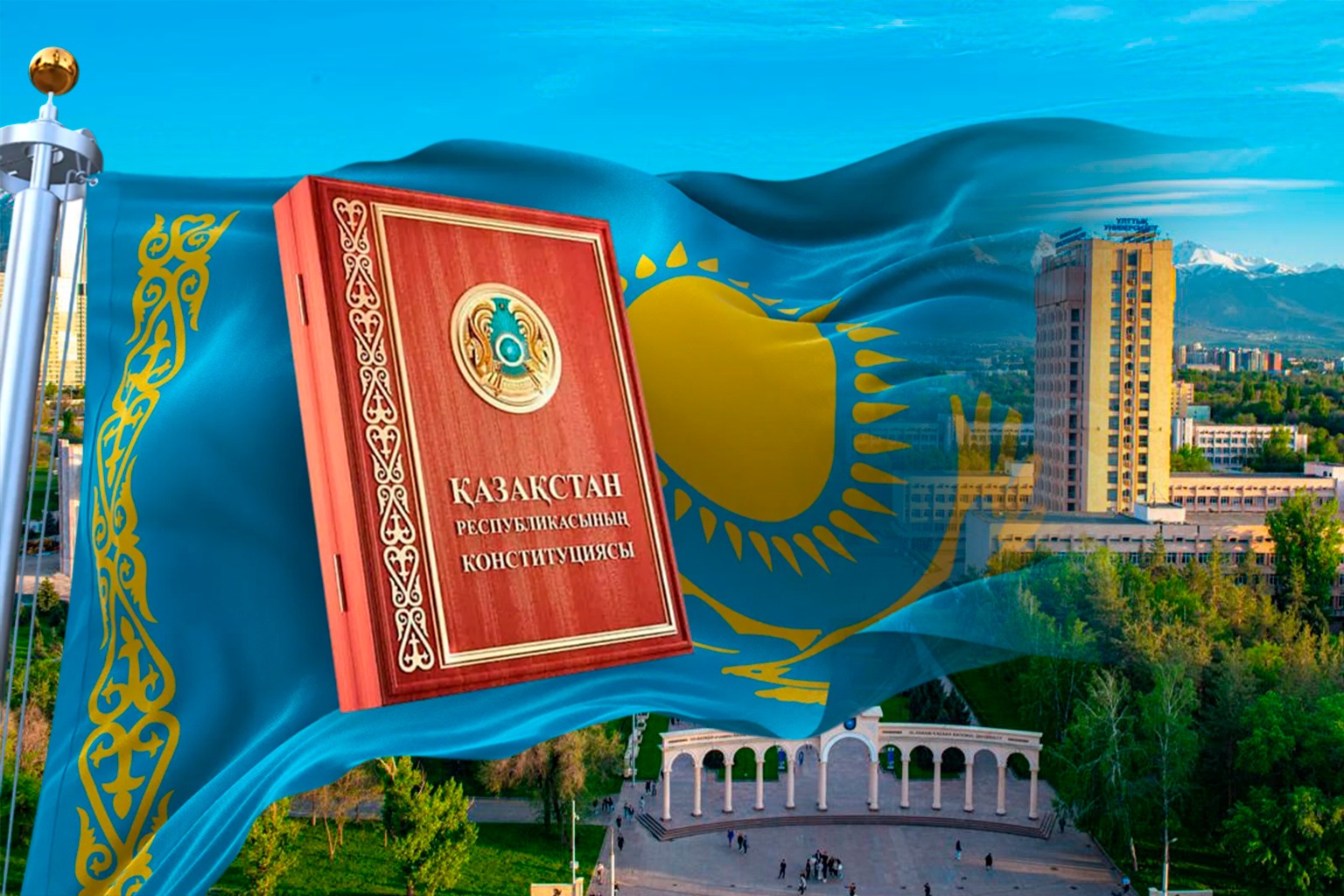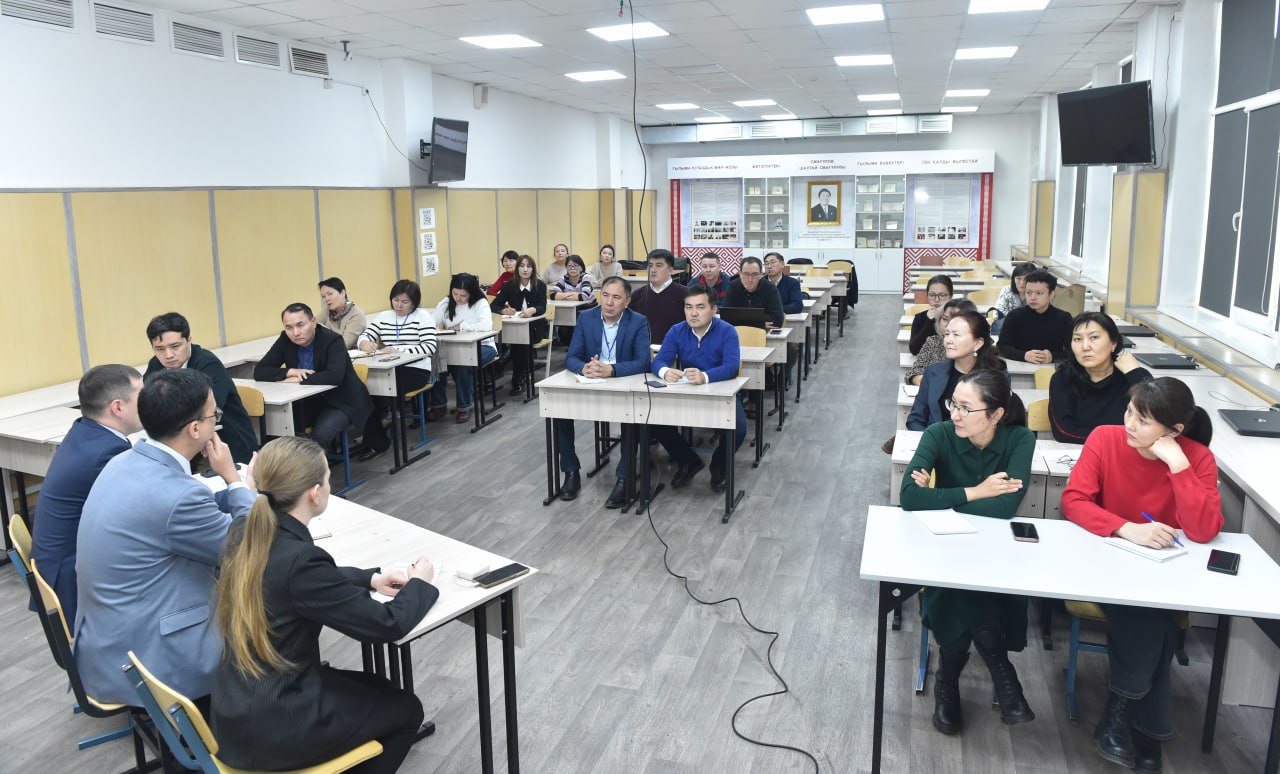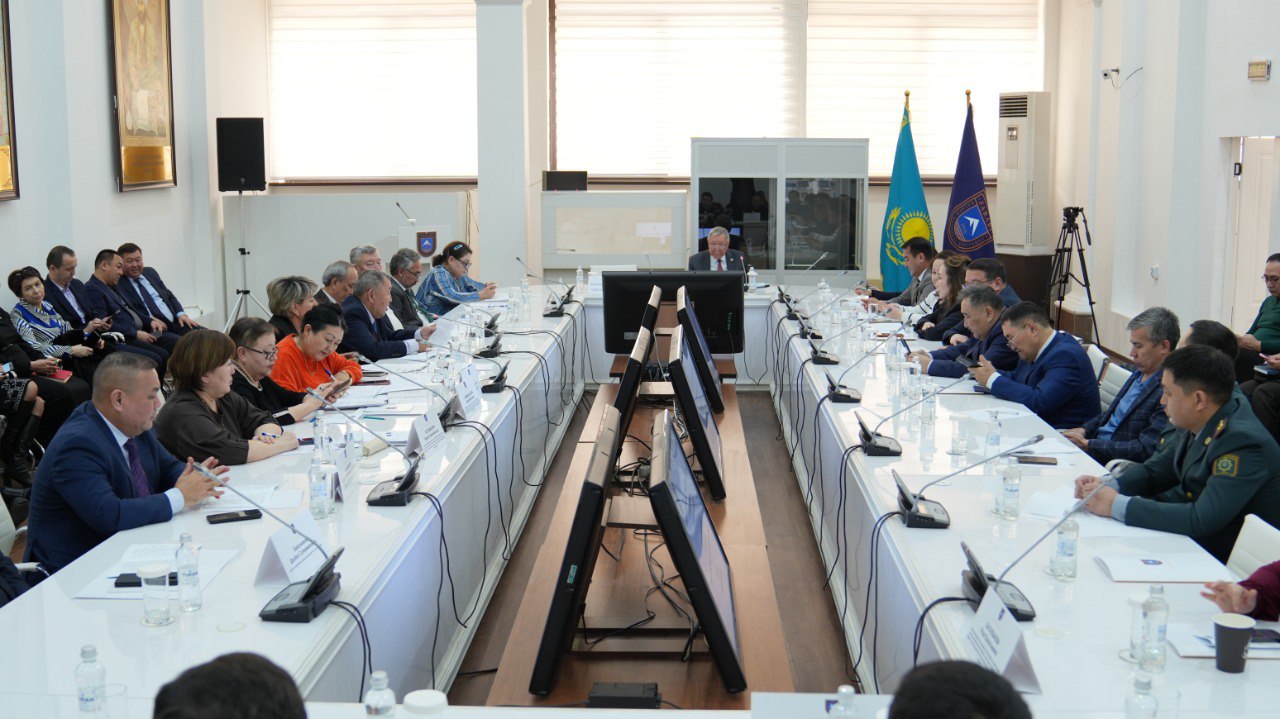Leadership lecture by Professor Nikolai Egorov of the Russian Federation at KazNU
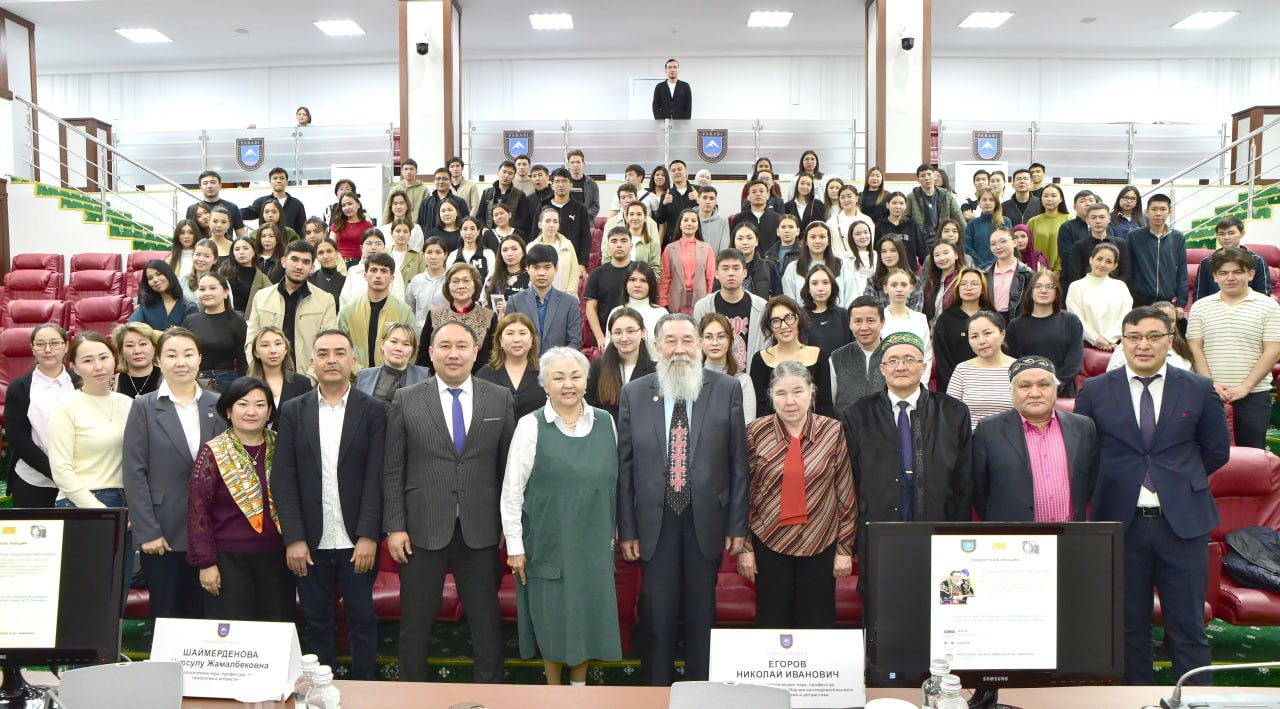
As part of the university's educational program, KazNU hosted a leadership lecture by Doctor of Philology, Professor Nikolai Egorov on the topic "Language in history and history in language (language as a historical source)".
Before the lecture, Margulan Ibraimov, Acting Vice-Rector for Scientific and Innovative Activities at Al-Farabi Kazakh National University, introduced the famous Turkologist-linguist, Doctor of Philology, Professor, Honored Scientist of the Chuvash Republic (1999), corresponding member of the Turkish Linguistic Society, member of the Presidium of the Association of Turkologists around the World and chief researcher at the Research Institute of Turkology and Altaic Studies The treasury of Nikolai Ivanovich Egorov. The professor speaks 8 languages and has extensive work experience in various scientific organizations, including Beijing National University, I.N. Ulyanov Chuvash State University and other universities.
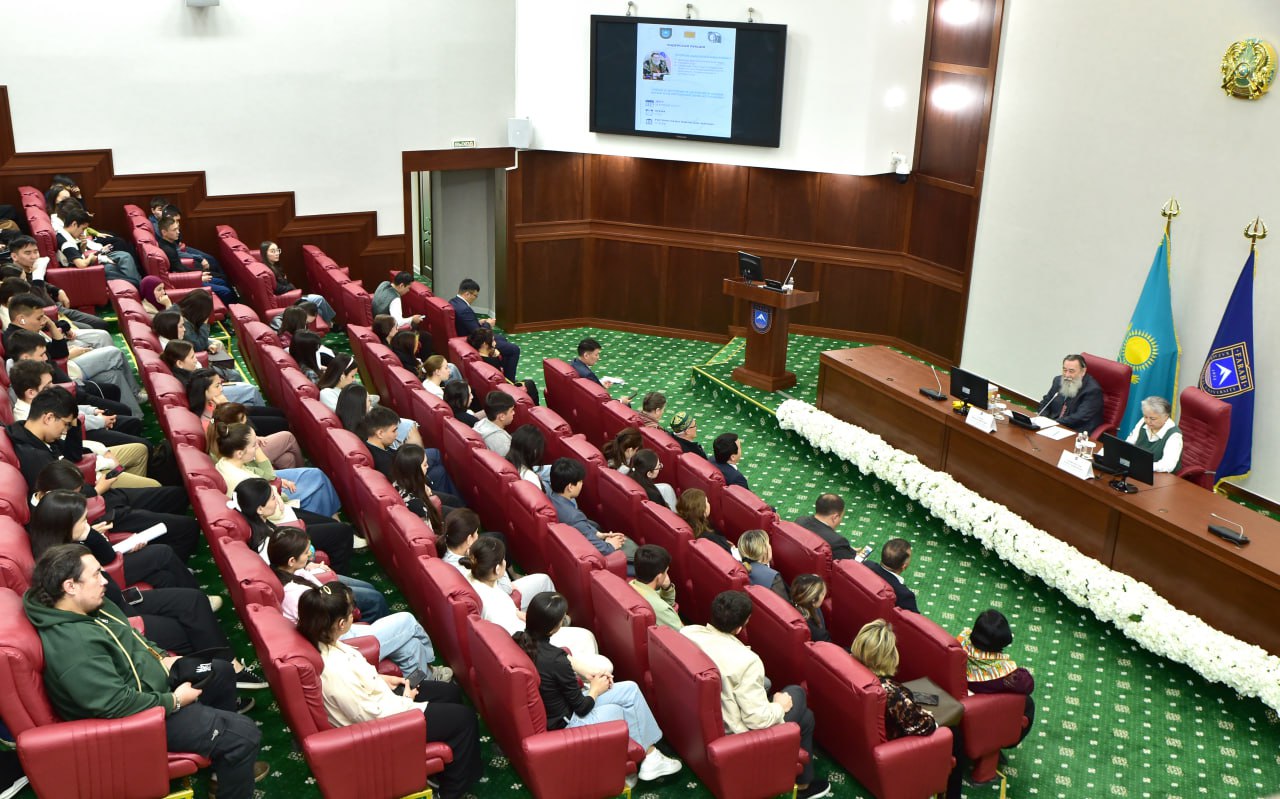
The scientist dedicated the beginning of the lecture to the first steps of the KazNU Research Institute of Turkology and Altaistics. According to Nikolai Egorov, the issue of establishing a Research Institute of Turkology was discussed by scientists in the last century, and only two years ago it was implemented by Chairman of the Board – Rector of KazNU Zhanseit Tuimebayev. "Kazakhstan is becoming a center for the study of the Turkic world, languages, culture and history of the Turkic peoples. This is what we dreamed of in the last century. Today, Kazakhstan is gaining its legal right, being in a geographical position, to be ahead of all scientific Turkology. The main task of the Research Institute of Turkology and Altaic Studies is to study the complex interrelations between the problems of language in history and history in language. This metaphorically outlined problem unites three quite practical areas of social and humanitarian research: linguistic, Turkic linguistics, ethnolinguocultural and paleohistorical.
This is the period of the general Turkic history that is not covered in written sources. This period can only be studied based on language data, first of all," the scientist said. He also noted that language is the most important source of history. Everything that surrounds a person is reflected in language and preserved. "If we properly understand the history of words and the history of the language as a whole, we will find the keys to those innermost secrets of history that are stored in the storeroom of our common Turkic language", - says Nikolai Egorov.
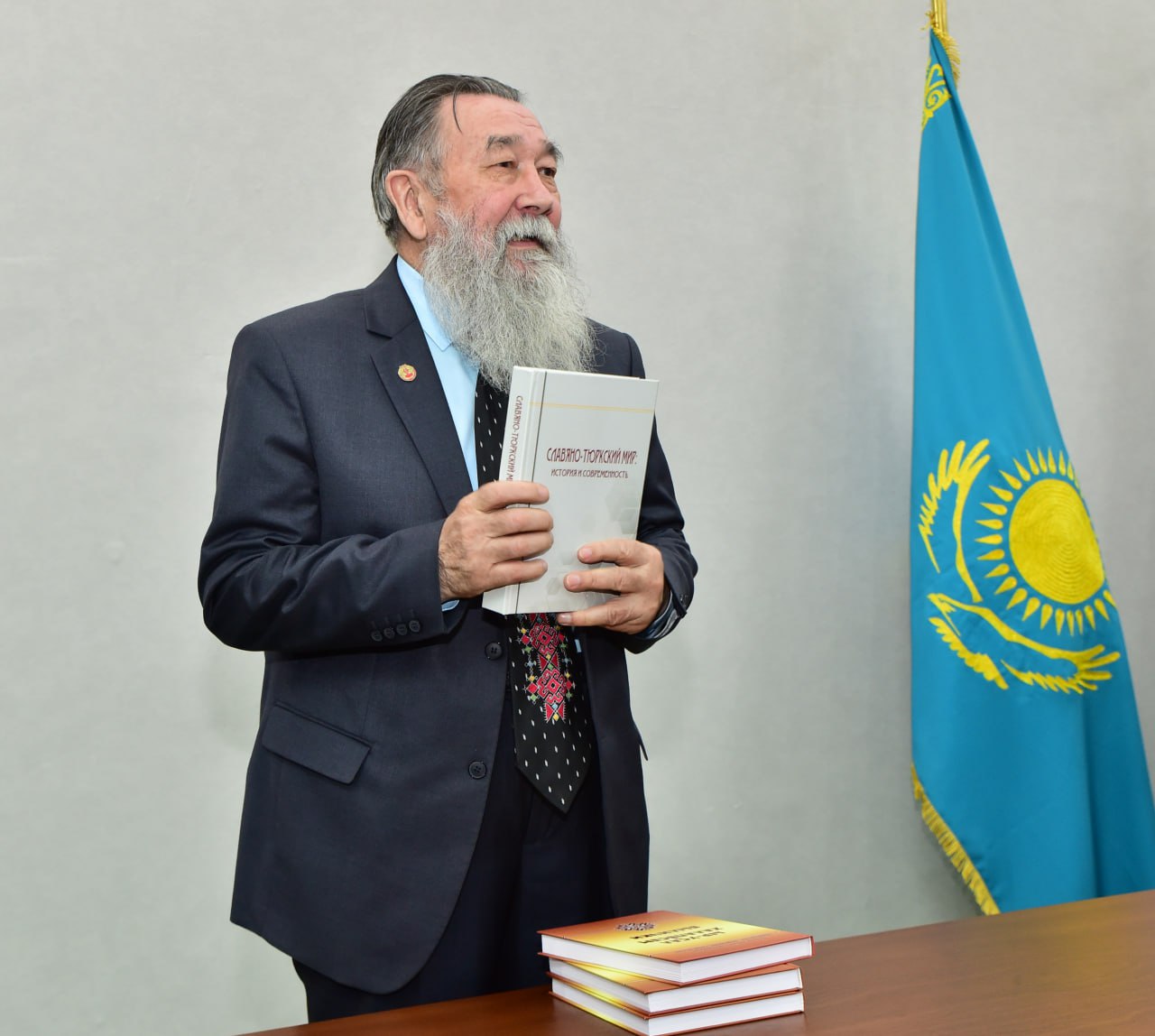
The lecturer gave many examples illustrating how changes in language can indicate social and political transformations. He proved that vocabulary, grammatical constructions and even phonetic features of a language can tell about migrations of peoples, cultural contacts and historical catastrophes.
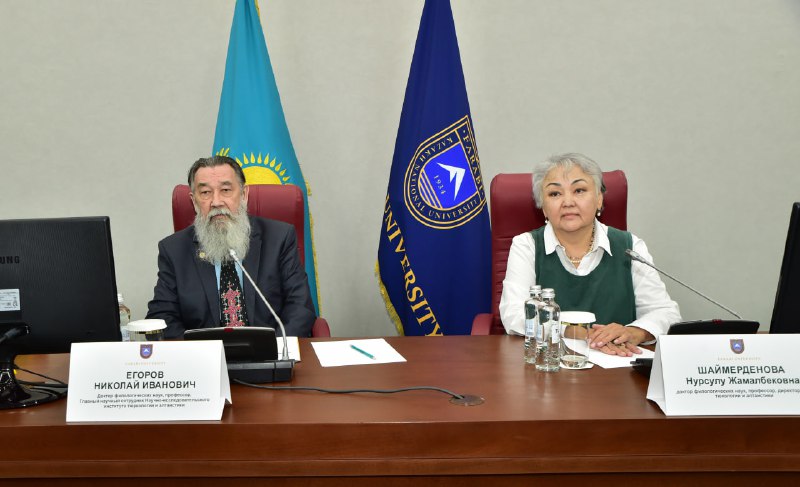
Language is a living organism that evolves with time. Words that were once borrowed from other languages and dialects enrich the national vocabulary, reflecting cultural exchanges and historical events.
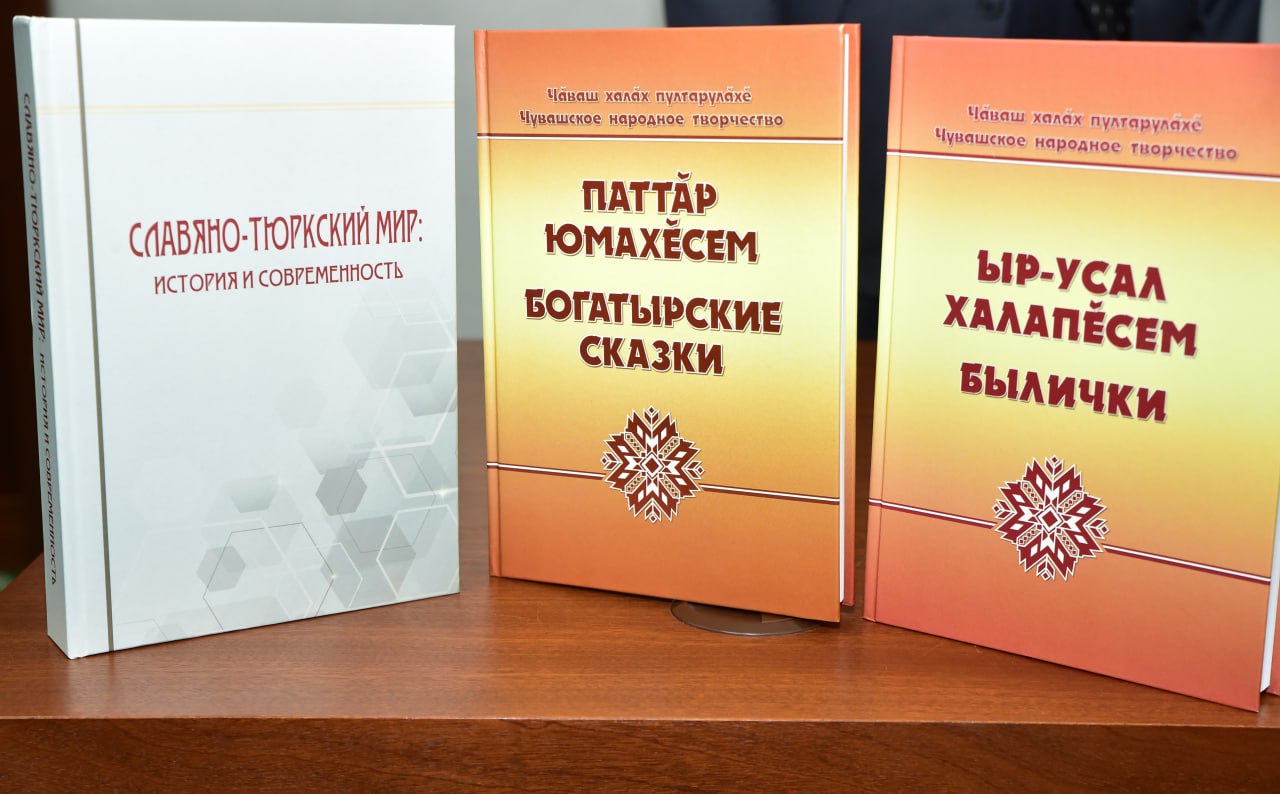
During the lecture, special attention was paid to the role of language in shaping the identity of the people. Nikolai Egorov noted that language is a key element of cultural identity and contributes to the preservation of the historical memory of the nation. He urged listeners to realize the importance of learning a language as a means of understanding history and culture.
At the end of the lecture, Professor Egorov answered questions from the audience.
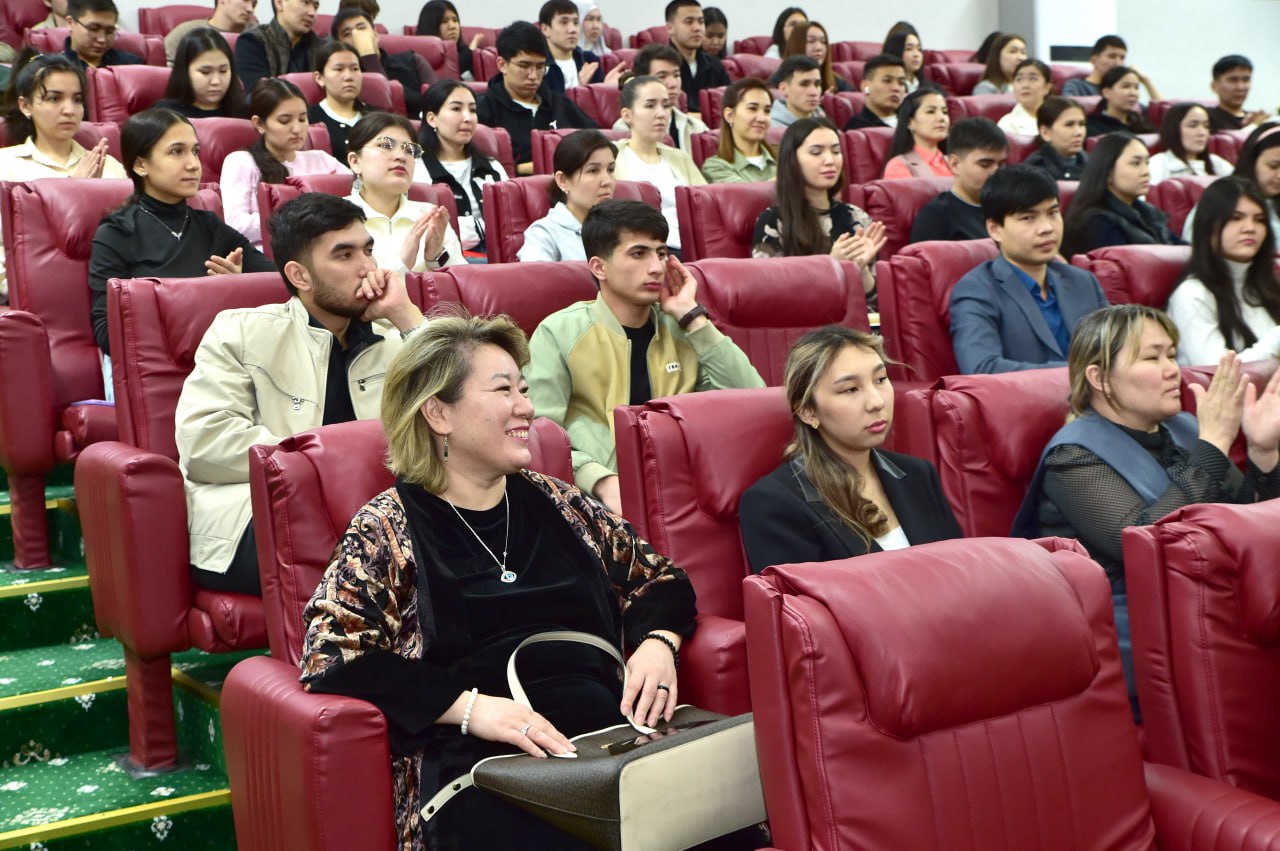
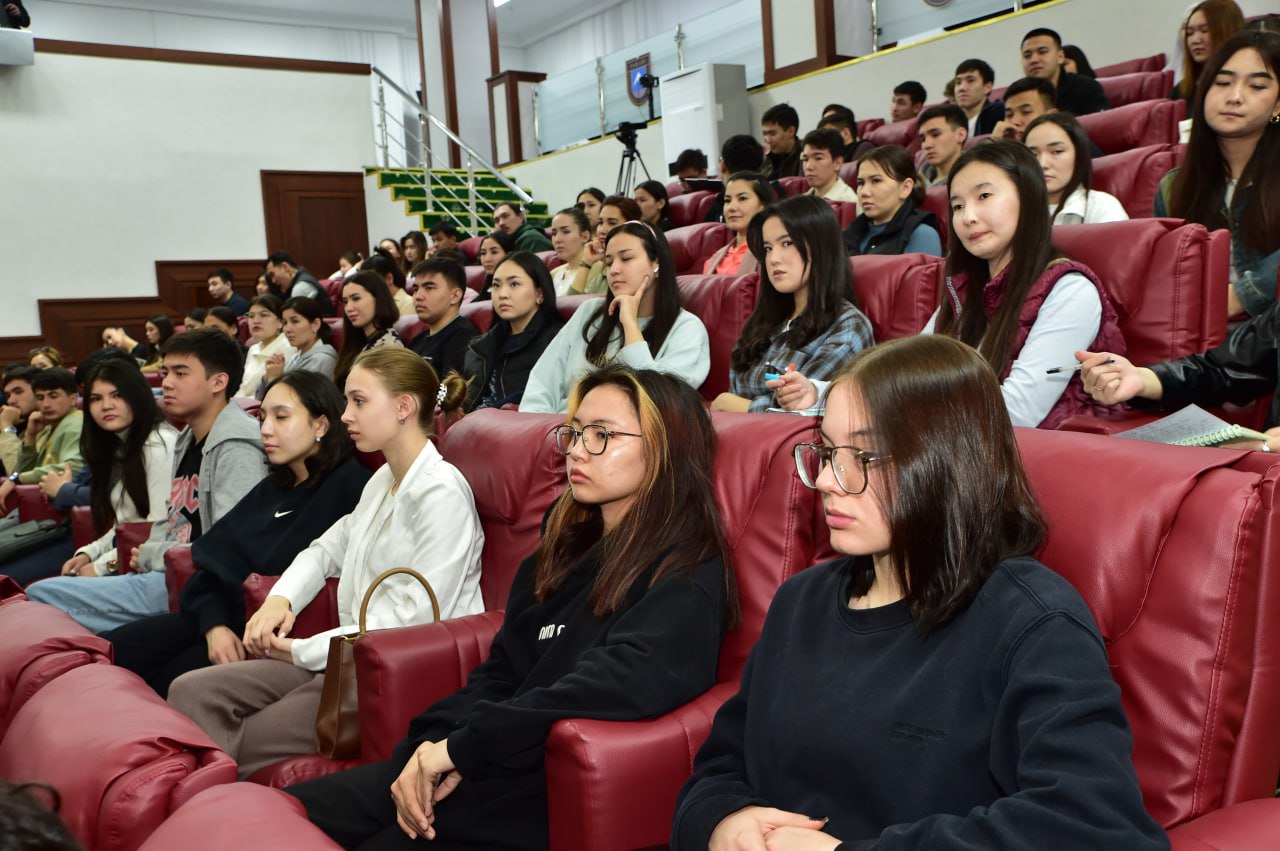
Press-service of Al-Farabi Kazakh National University
